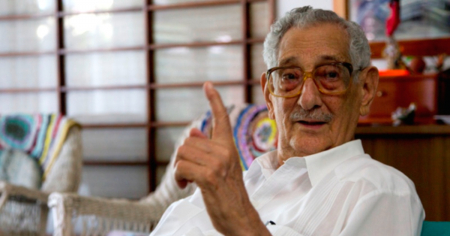Cuba's Prime Minister, Manuel Marrero Cruz, accused the owners of Mipymes in the country of perpetuating corruption and charging the State inflated amounts for their services.
During a government visit to Cienfuegos "to correct distortions and revitalize the economy," a member of the Political Bureau of the Central Committee of the Communist Party of Cuba (PCC) addressed the alleged violations committed by small and medium-sized enterprises in the province, both in the management of their Mipymes and in price manipulation and billing to state companies and organizations.
"Twenty-one million… Contracts that we have paid to those millionaires! It has already been determined by the MICONS [Ministry of Construction] that the work they did does not cost that much. It costs much less!" Marrero Cruz pointed out during his remarks, according to a report from the National Television News (NTV).
Without mentioning specific cases, the Prime Minister of Miguel Díaz-Canel's government cast a shadow of suspicion over the emerging private business activity, which has been encouraged by the regime itself due to the evident failure of the planned and state-controlled economy of the socialist model.
"In all the work done by the Mipymes, we pay 600 pesos for each worker so they can buy their lunch. But what about the hospital lunch, and the doctors we are paying?" questioned Marrero Cruz, reflecting on his own decisions and shifting the responsibility for the collapse of public services to the "new economic actors."
The speech of the Cuban regime highlights the contradictions faced by the ruling class and the elite that control the dollarized economy and national wealth through the Business Administration Group S.A. (GAESA), which is under military control.
In need of a private business sector that revitalizes the economy and services, creates jobs, produces goods, enhances its image, and establishes synergies between the state and private sectors ("productive linkage"), the "cadres" of the so-called "revolution" (and de facto owners of the country) fear the strength and rising power of the private sector. They employ all possible means to ensure that it remains "loyal" to the "social mission" and the "principles" of a failed abstraction.
Far from having the courage and integrity to promote a true opening that would lead to an economic and political transition in the country, the Palacio de la Revolución is guiding the Cuban nation down the most disastrous paths that run counter to the interests of a population stripped of rights and freedoms and subjected to the unyielding power of a repressive and violent regime.
The so-called "new economic actors" are pawns in the strategy of a regime that seeks to survive and perpetuate itself in power. To achieve this, it has encouraged the emergence of private enterprise in Cuba, with the aim of creating a clientelist network and a certain empowered social class that serves its interests and can be kept under its control.
As has been demonstrated, many of the owners of micro, small, and medium enterprises (Mipymes) have strong family or work ties to the Cuban regime, and are motivated to assist the State in its social welfare functions, to lower the price of foreign currency in the informal market, among other "missions."
However, history and the facts demonstrate that the Cuban regime is not a reliable partner, and that tomorrow it may turn against the "actors" it created and promoted today. Everything depends on its survival.
The arrival of Russian, Mexican, or Venezuelan oil, or any other scenario of "bull market" conditions for GAESA's coffers, could jeopardize the existence of Cuba's nascent private sector, especially when the regime itself asserts that one of its roles is to boost the state economy. The State (understood as its owners) will never relinquish the "centrality" of state-owned enterprises and the socialist economy, which serves as a pretext to keep the nation's wealth under its control.
Cuban entrepreneurs also face the threat of "public opinion," and they can be used at any moment as scapegoats to bear the blame for high prices, inequality, or the "looting" of the state that prevents it from providing quality public services.
Marrero Cruz's words in Cienfuegos serve, as they often do, as a warning to those entrepreneurs whom the regime is beginning to label as "millionaires," corrupt, and responsible for the socioeconomic disaster occurring on the Island.
For the moment, they are allowed to continue with their activities, but in public discourse, they are increasingly being labeled as tax evaders, importers, speculators, and corrupt individuals. Entrepreneurship in Cuba is underpinned by significant legal uncertainty, typical of a totalitarian communist regime.
Anyone who believes they are safe from this situation due to excessive confidence in their business strength, connections to those in power, or personal wealth is making a serious mistake and might find themselves in the same position as Alejandro Gil Fernández tomorrow, having to pay for all the broken pieces.
Filed under:
